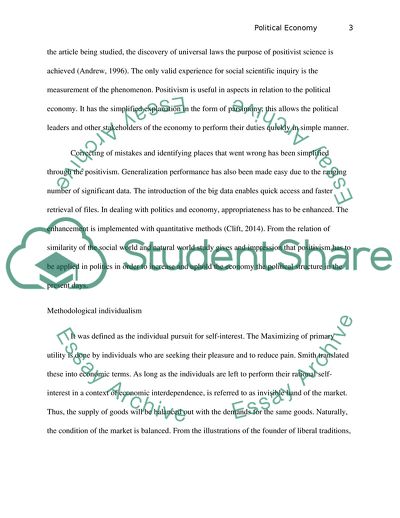Cite this document
(Political Economy: Ontology and Positivism Assignment Example | Topics and Well Written Essays - 1750 words, n.d.)
Political Economy: Ontology and Positivism Assignment Example | Topics and Well Written Essays - 1750 words. https://studentshare.org/politics/1875303-political-economy-midterm-essay
Political Economy: Ontology and Positivism Assignment Example | Topics and Well Written Essays - 1750 words. https://studentshare.org/politics/1875303-political-economy-midterm-essay
(Political Economy: Ontology and Positivism Assignment Example | Topics and Well Written Essays - 1750 Words)
Political Economy: Ontology and Positivism Assignment Example | Topics and Well Written Essays - 1750 Words. https://studentshare.org/politics/1875303-political-economy-midterm-essay.
Political Economy: Ontology and Positivism Assignment Example | Topics and Well Written Essays - 1750 Words. https://studentshare.org/politics/1875303-political-economy-midterm-essay.
“Political Economy: Ontology and Positivism Assignment Example | Topics and Well Written Essays - 1750 Words”. https://studentshare.org/politics/1875303-political-economy-midterm-essay.


